Have you ever wondered what criminal defense law entails in Florida?
We will break down the role of a criminal defense lawyer, the differences between a public defender and a private attorney, the various types of criminal offenses in the state, and the potential penalties one may face.
Explore the steps in the criminal defense process, as well as possible defenses that can be utilized in Florida.
Learn more about navigating the complexities of the legal system in the Sunshine State.
Key Takeaways:
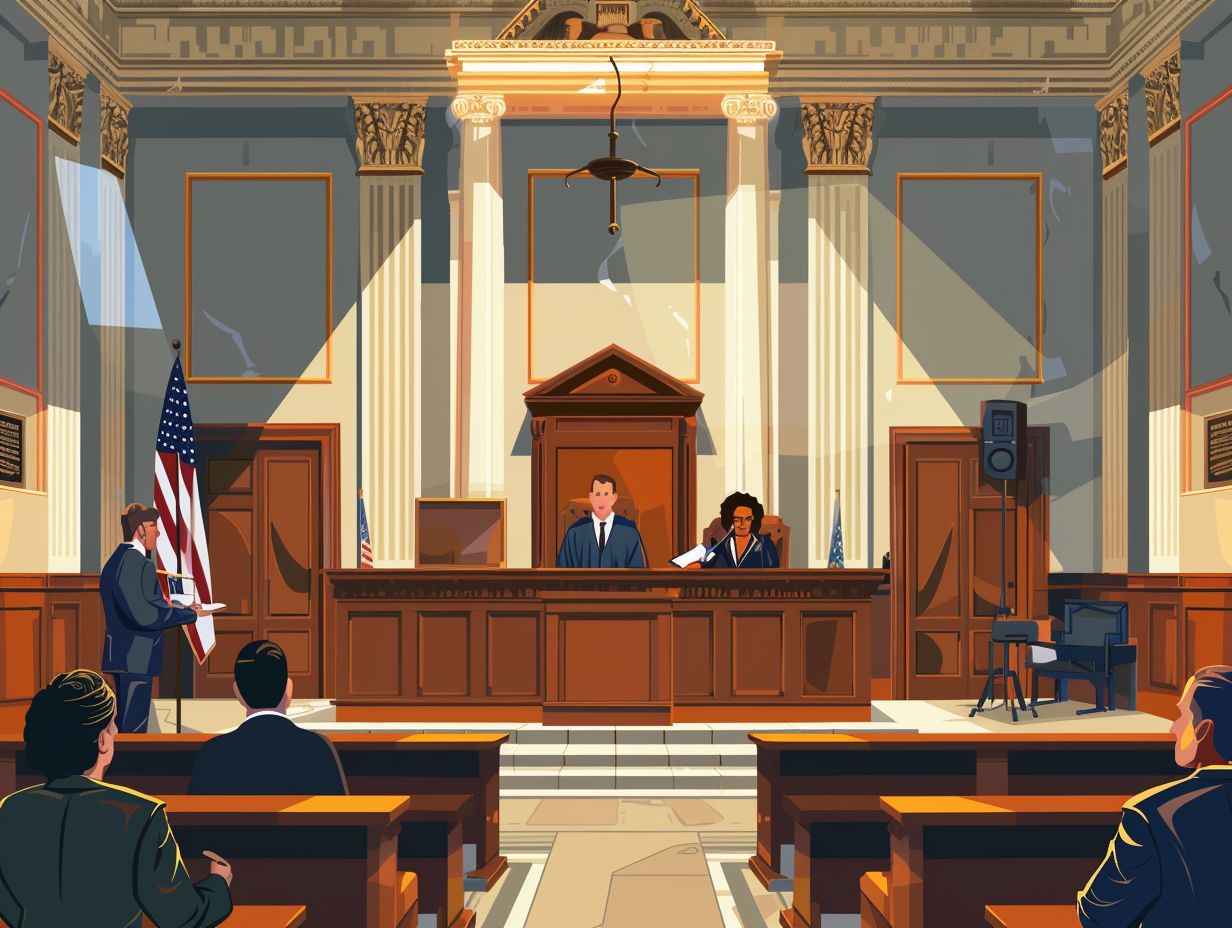
- Criminal defense law protects individuals accused of committing a crime in Florida.
- A criminal defense lawyer plays a crucial role in ensuring fair treatment and representation for the accused.
- Possible penalties for criminal offenses in Florida include jail time, fines, probation, and community service, among others.
What is Criminal Defense Law?
In Florida, criminal defense law covers a variety of legal protections and strategies employed by defense attorneys to represent individuals accused of criminal offenses, ensuring that their rights are respected throughout the legal proceedings.
Understanding that criminal defense law is crucial for safeguarding the rights of individuals facing criminal charges is essential. When individuals are accused of a crime, they often turn to legal professionals such as Michael B. Cohen for expert guidance and advocacy.
A proficient criminal defense attorney can evaluate the specifics of a case, challenge evidence presented by the prosecution, and guarantee that the accused is granted a fair trial. This underscores the importance of having a robust defense strategy to uphold individuals’ rights and ensure justice within the legal system.
What is the Role of a Criminal Defense Lawyer?
A criminal defense lawyer in Florida fulfills an important role in safeguarding the rights of the accused, navigating the intricacies of criminal law, and minimizing the potential legal ramifications that may stem from criminal charges.
What is the Difference Between a Public Defender and a Private Criminal Defense Lawyer?
The key distinction between a public defender and a private criminal defense lawyer in South Florida relates to their employment and payment structures. Public defenders are appointed by the government, while private lawyers are directly hired by the defendant.
Public defenders, such as those employed by the local Public Defender’s Office, often manage heavier caseloads due to the high volume of cases they handle. This heavy workload can sometimes result in limited availability for each case, potentially impacting the level of personal attention provided to a defendant.
In contrast, private criminal defense lawyers, such as those at Valiente, Carollo, and McElligott PLLC, typically handle fewer clients simultaneously. This allows them to dedicate more time and expertise to each case, offering a personalized approach that can result in a deeper understanding of the case’s complexities and tailored defense strategies.
What are the Different Types of Criminal Offenses in Florida?
Criminal offenses in Florida are classified into various types based on their severity, such as felonies, misdemeanors, and juvenile offenses, each carrying unique legal implications and penalties.
1. Felonies
Felonies in Florida are considered serious offenses that can result in severe penalties, including lengthy prison sentences, substantial fines, and long-term impacts on an individual’s legal record.
These offenses are categorized into classes, with Class 1 being the most severe and carrying the harshest consequences. Class 1 felonies, such as murder and armed robbery, are punishable by life imprisonment or potentially even the death penalty under Florida Statute 775.082.
Class 2 felonies, like aggravated assault and kidnapping, can lead to up to 15 years in prison and fines up to $10,000, outlined in Florida Statute 775.083. Class 3 felonies, which include offenses like burglary and drug trafficking, may result in imprisonment for up to five years and fines of up to $5,000 according to Florida Statute 775.084.
2. Misdemeanors
Misdemeanors in Florida are considered lesser offenses compared to felonies, often resulting in shorter jail time, smaller fines, and less severe long-term consequences. These lesser offenses can encompass a variety of actions, such as petty theft, disorderly conduct, simple assault, and traffic violations.
When charged with a misdemeanor, individuals go through a legal process that involves arraignment, pre-trial motions, trial, and potentially sentence if found guilty. The penalties for misdemeanors can include probation, community service, restitution, or a brief period of incarceration.
The outcomes of these cases can significantly improve with the guidance of an experienced defense attorney who can navigate the legal complexities, negotiate plea deals, and advocate for reduced charges or penalties.
3. Juvenile Offenses
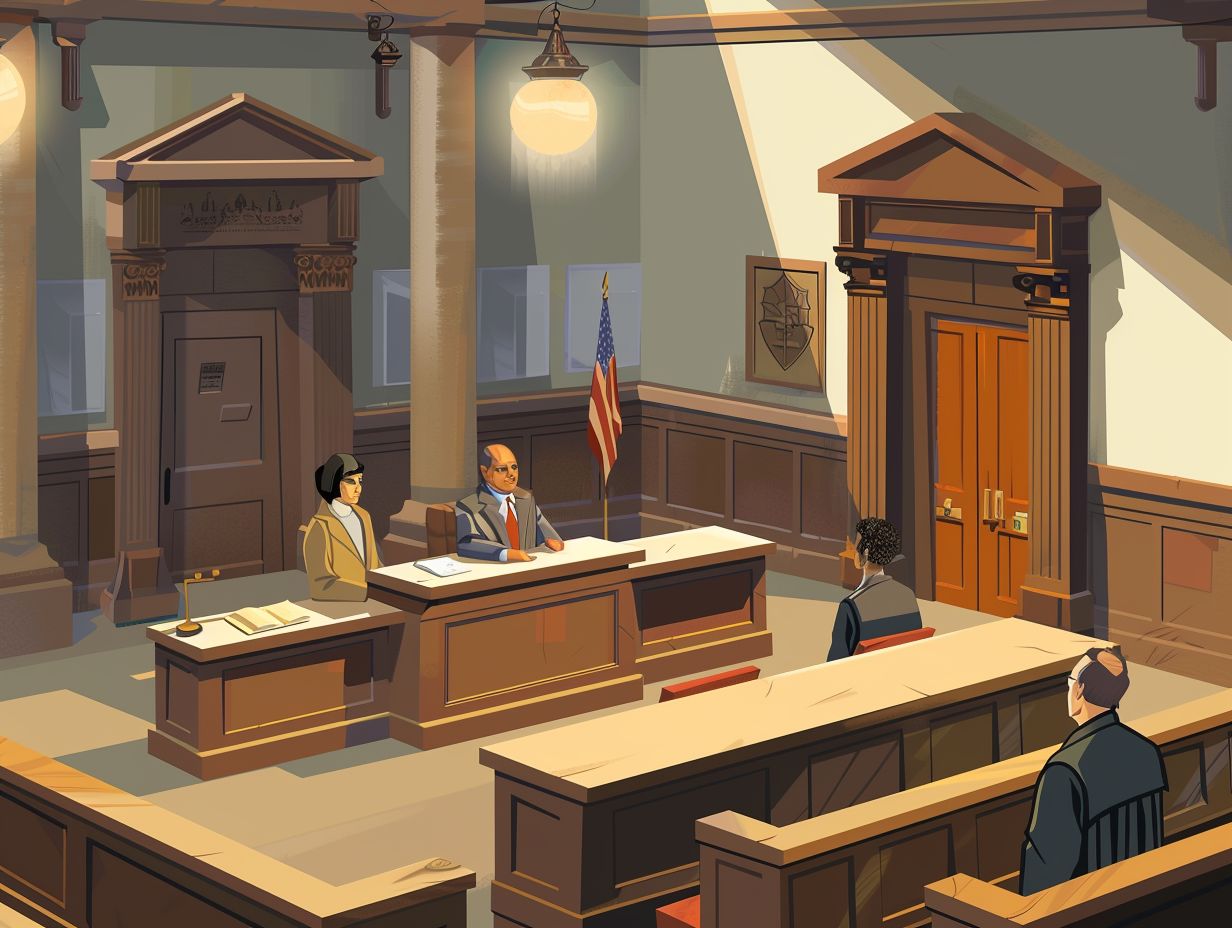
Juvenile offenses in Florida are handled differently within the criminal justice system, with an emphasis on rehabilitation and reintegration rather than punishment.
The legal framework regarding juvenile offenses considers the age and developmental stage of minors, recognizing that they may lack a full understanding of the consequences of their actions.
Common types of crimes committed by juveniles include petty theft, vandalism, drug offenses, and underage drinking. When minors face charges for such offenses, the court plays a significant role in determining appropriate measures, aiming to address the underlying reasons for the behavior and prevent future criminal activities.
Legal representation for juveniles is essential to ensure their rights are safeguarded and their voices are heard throughout the legal process.
What are the Possible Penalties for Criminal Offenses in Florida?
The potential penalties for criminal offenses in Florida differ greatly, including jail or prison sentences, fines, probation, and community service. The specific consequences depend on the type and seriousness of the offense.
1. Jail or Prison Time
In Florida, jail or prison time is a significant penalty for criminal offenses, typically associated with serious crimes like felonies.
The key difference between jail and prison revolves around the duration of confinement and the nature of the offenses committed. Jail typically accommodates short-term stays for less severe crimes, while prison detains individuals with longer-term sentences for more serious offenses.
Various factors affect sentencing, including the specifics of the crime, the individual’s criminal record, and any mitigating circumstances present. A defense attorney plays a crucial role in representing the defendant, negotiating potential plea agreements, and presenting a robust defense in court. These factors can greatly influence the case’s outcome and the length of incarceration.
2. Fines and Restitution
In Florida, fines and restitution are common penalties for various criminal offenses, intended to provide financial compensation to victims and deter future criminal behavior.
The determination of fines and restitution in Florida typically involves a combination of statutory guidelines and judicial discretion. For example, in cases of theft or property damage, the amount of restitution may be based on the value of the stolen or damaged property.
Fines for traffic violations are often determined by the severity of the offense and may vary depending on factors such as previous violations or the presence of aggravating circumstances. In more serious crimes like fraud or embezzlement, fines and restitution can reach significant amounts, sometimes ranging in the thousands or even millions of dollars.
3. Probation
Probation in Florida functions as an alternative to incarceration, allowing individuals convicted of specific crimes to reside in the community under supervision while following particular conditions. Individuals on probation are required to meet various conditions, including regular visits to a probation officer, maintaining employment or pursuing education, and abstaining from criminal activities.
Probation may be granted for a range of offenses, including non-violent crimes, drug offenses, or certain misdemeanors. Probation officers are responsible for monitoring and helping withdividuals on probation to ensure compliance with court-ordered conditions.
While probation provides an opportunity for rehabilitation and societal reintegration, individuals face challenges such as rigorous supervision, potential violations leading to incarceration, and restricted freedom.
4. Community Service
Community service is commonly used as a form of penalty for criminal offenses in Florida, with a focus on rehabilitation and restitution through meaningful contributions to the community.
This type of punishment can come in various types, such as cleaning up local parks, assisting at food banks, or participating in mentorship programs. Offenses that typically lead to community service include non-violent crimes like minor drug offenses, theft, or vandalism.
By participating in these service tasks, individuals not only complete their sentence but also acquire valuable skills, develop a sense of responsibility, and cultivate empathy towards those in need.
The community benefits from the extra support and efforts provided by these individuals, promoting a sense of unity and collaboration among residents.
What are the Steps in the Criminal Defense Process in Florida?
The criminal defense process in Florida includes several important steps, such as:
- Arrest
- Arraignment
- Pre-trial conference
- Trial
- Sentencing
All of these steps are essential in ensuring a fair and just legal proceeding.
1. Arrest
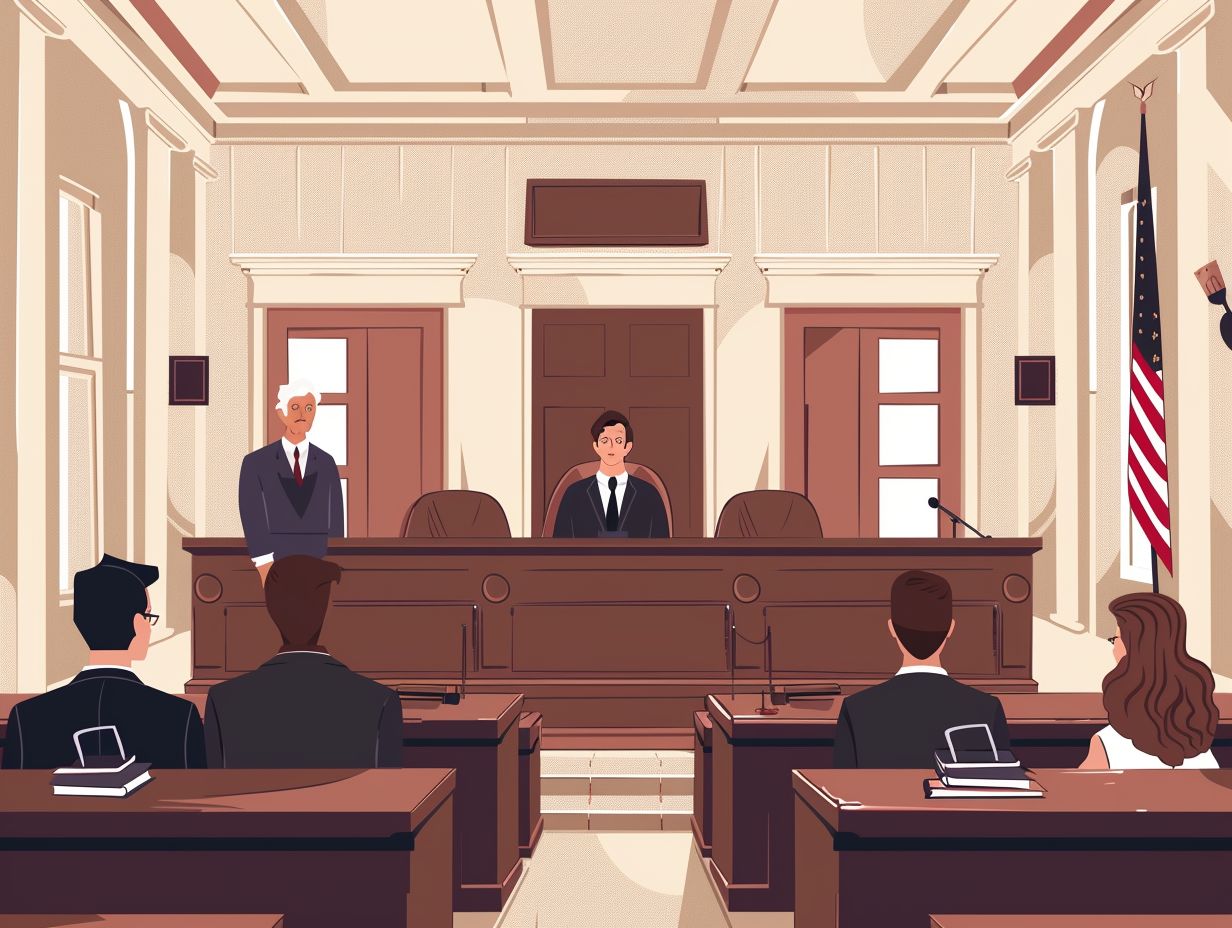
The initial step in the criminal process in Florida is the arrest, where law enforcement detains an individual suspected of committing a crime based on probable cause.
Upon being arrested, individuals are informed of their Miranda rights, which include the right to remain silent, the right to an attorney, and the right to have an attorney appointed if they cannot afford one.
Understanding these rights is essential for individuals to safeguard themselves during the arrest process. Law enforcement officers must adhere to specific procedures during an arrest to protect the individual’s rights and ensure a fair legal process.
Having knowledge of one’s rights can help prevent unjust treatment and bring clarity in the challenging circumstance of being arrested.
2. Arraignment
An arraignment is a formal court appearance in Florida where the accused is officially charged with a crime and asked to enter a plea of guilty, not guilty, or no contest.
During the arraignment, the judge reads the charges against the accused, explains their rights, and sets conditions for their release if applicable. If the accused pleads guilty, they are admitting to the charges, which may result in a quicker resolution but also a conviction.
On the other hand, entering a plea of not guilty means the case will proceed to trial where the prosecution must prove the accused’s guilt beyond a reasonable doubt. Opting for a plea of no contest means the accused neither admits nor disputes the charges but still accepts the punishment.
A defense attorney plays a crucial role in advising the accused on the potential consequences of each plea and helping them make an informed decision based on their unique circumstances.
3. Pre-Trial Conference
The pre-trial conference in Florida is a meeting that involves the defense attorney, prosecutor, and judge coming together to discuss the case, explore plea bargains, and plan for the upcoming trial.
During this conference, both the defense and prosecution typically exchange evidence and witness lists. This exchange allows each party to gain insight into the strengths and weaknesses of the other’s case, aiding in the refinement of legal strategies.
By analyzing the evidence presented and potential testimonies, the parties can better prepare for trial. Discussions at the pre-trial conference often focus on possible motions that may be filed, such as motions to suppress evidence or requests for specific jury instructions. These strategic discussions are crucial in shaping the case as it progresses towards trial.
4. Trial
The trial represents a critical stage in the criminal defense process in Florida. Here, the defense attorney and prosecutor present their cases before a judge or jury to determine the guilt or innocence of the accused.
During a trial, the opening statements provide the initial opportunity for both sides to outline their arguments and set the tone for the proceedings. Witness testimonies are crucial in offering firsthand accounts of the events in question, establishing facts, and supporting each party’s narrative.
Cross-examinations are pivotal moments where the credibility and accuracy of witnesses’ testimonies are challenged. The closing arguments then allow the defense attorney to reinforce their case, tying together evidence and legal principles to persuade the judge or jury of the defendant’s innocence.
5. Sentencing
The sentencing process in Florida occurs after a conviction, during which the judge determines the appropriate penalties based on the severity of the crime, the defendant’s criminal history, and other pertinent factors. These factors may involve aggravating or mitigating circumstances, the impact of the crime on victims, and statutory sentencing guidelines.
For example, in a recent Florida case, a defendant found guilty of a nonviolent offense with no prior criminal record received a less severe sentence than a repeat offender facing similar charges. Defense attorneys have a critical role in representing their clients during the sentencing phase, presenting arguments for mitigation, rehabilitation, and other factors that could justify a fair and equitable sentence.
What are Possible Defenses for Criminal Charges in Florida?
In Florida, there are several potential defenses for criminal charges that a knowledgeable criminal defense lawyer can utilize, such as the insanity defense, self-defense, entrapment, and lack of evidence.
1. Insanity Defense
The insanity defense in Florida is utilized to argue that the defendant was not held responsible for their actions due to severe mental illness or incapacity at the time of the crime. In Florida, the insanity defense can be successful if the defendant meets the legal criteria of not understanding the nature of their actions or the wrongfulness of their actions. The burden of proof rests on the defendant to demonstrate their mental state during the offense.
The process typically involves psychiatric evaluations, testimonies from mental health experts, and the presentation of medical records. Precedents established by case law like State v. Stone and State v. Santiago have influenced successful insanity defenses. If successful, the outcome could result in institutionalization rather than incarceration.
2. Self-Defense
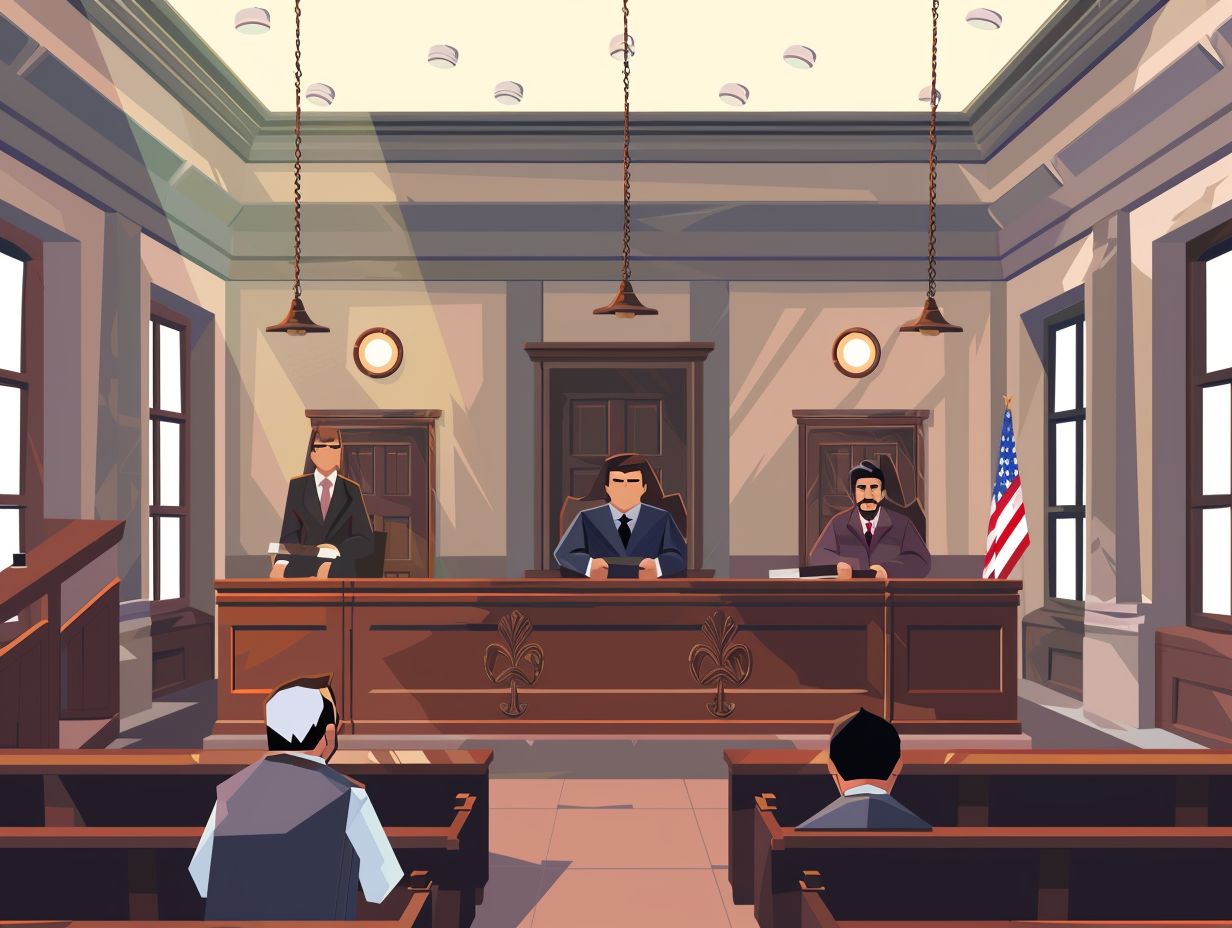
The use of self-defense is a common legal strategy in Florida, particularly within the framework of the Stand Your Ground law, which permits the justifiable use of lethal force when confronted with an immediate threat.
This law enables individuals to defend themselves in situations where they have a reasonable belief that their life or the lives of others are at risk.
The application of lethal force under this law is contingent upon specific conditions, including the lack of a duty to retreat and the presence of a rational fear of severe bodily harm or death. Understanding and adhering to these principles is vital for individuals who claim self-defense in legal proceedings.
The Stand Your Ground law garnered substantial attention during high-profile cases such as the Trayvon Martin and George Zimmerman incident, where the interpretation and application of self-defense laws ignited heated debates and raised concerns about racial prejudice and justice.
Grasping the legal complexities and the process of asserting self-defense can have significant implications for individuals entangled in similar circumstances.
3. Entrapment
Entrapment is the act of law enforcement persuading a person to commit a crime they would not have otherwise committed, and it is recognized as a legal defense in Florida.
This defense depends on two main factors: the defendant must prove that law enforcement induced them to commit the crime and that they were not inclined to commit such a crime. Proving entrapment can be difficult since the burden of proof usually lies with the defendant. If successful, it can result in the charges being dropped.
In the significant case of Sorrells v. United States, the Supreme Court established entrapment as a valid legal defense. This defense acts as an important protection against the misuse of power by law enforcement agencies.
4. Lack of Evidence
The absence of evidence serves as a key defense strategy in Florida criminal cases, underscoring the prosecution’s responsibility to prove the defendant’s guilt beyond a reasonable doubt.
In criminal trials, the required standards of proof play a significant role in obtaining convictions. In the absence of substantial evidence, the prosecution may face challenges in meeting this high burden of proof. This underscores the crucial function of defense attorneys in questioning the adequacy of the prosecution’s evidence.
For example, in well-known cases such as the O.J. Simpson trial and the Casey Anthony case, defense teams leveraged the lack of definitive evidence to create doubt among jurors, leading to acquittals. These instances highlight the vital role of compelling evidence in criminal proceedings.
Frequently Asked Questions
What are criminal defense laws in Florida?
Criminal defense laws in Florida refer to the set of rules and regulations that govern how individuals accused of committing a crime are treated in the state’s legal system. These laws outline the rights and protections that are afforded to defendants during the criminal justice process.
What is the purpose of criminal defense laws in Florida?
The main purpose of criminal defense laws in Florida is to ensure that individuals accused of a crime are given a fair trial and are not wrongfully convicted. These laws also aim to protect the rights of defendants and ensure that they are treated justly in the legal system.
What are some common criminal defense strategies used in Florida?
Some common criminal defense strategies used in Florida include self-defense, alibi, insanity plea, and entrapment. These strategies are used by defense attorneys to prove their client’s innocence or to lessen the severity of their punishment.
What is the difference between a misdemeanor and a felony in Florida?
In Florida, misdemeanors are less serious crimes that are punishable by up to one year in jail, while felonies are more serious crimes that carry a sentence of more than one year in prison. Felonies also have harsher consequences and can result in the loss of certain rights, such as the right to vote or own a firearm.
Can someone be charged with a crime in Florida without any evidence?
No, in order for someone to be charged with a crime in Florida, there must be sufficient evidence to prove their guilt beyond a reasonable doubt. This is a constitutional right afforded to all individuals accused of a crime in the United States.
What should I do if I am arrested for a crime in Florida?
If you are arrested for a crime in Florida, it is important to remain calm and not resist arrest. You have the right to an attorney, and it is recommended to consult with a criminal defense lawyer as soon as possible to ensure that your rights are protected and you receive a fair trial.

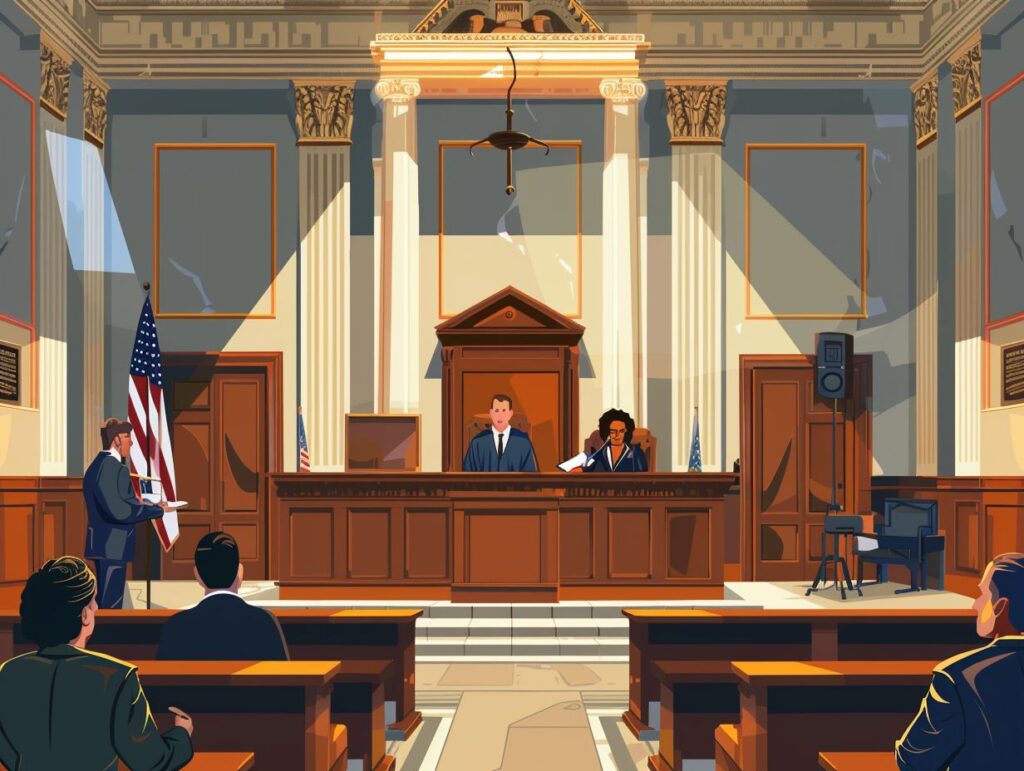












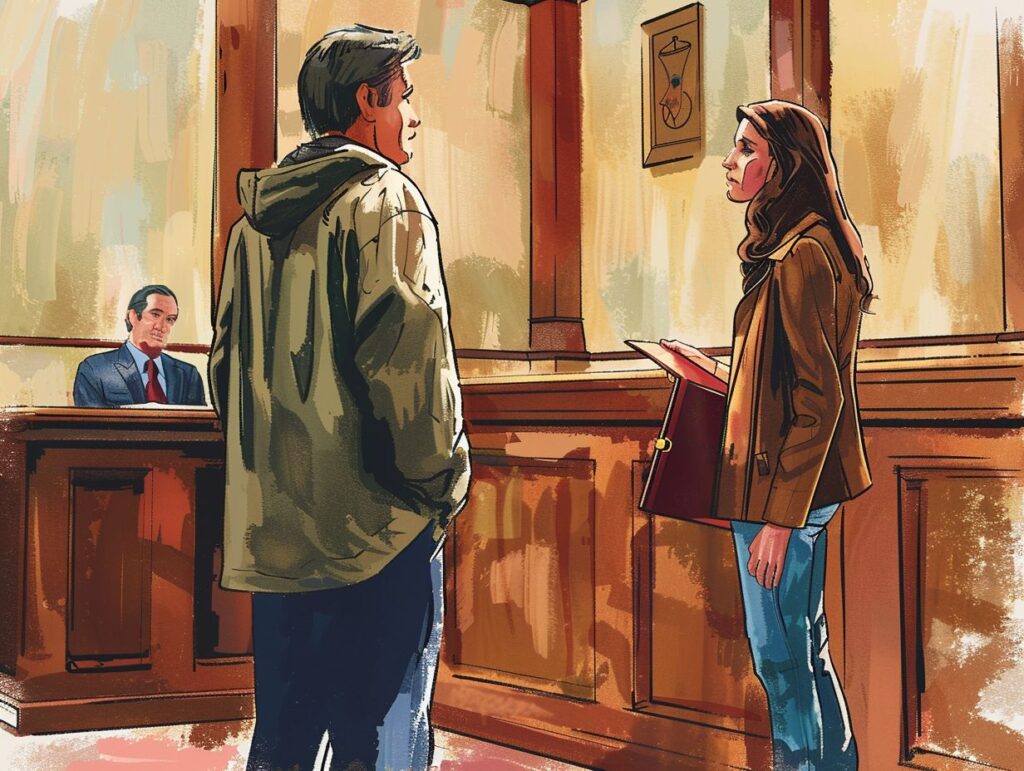







Rate this article:
Average rating 0 / 5. Vote count: 0
No votes so far! Be the first to rate this post.
No Comments yet!